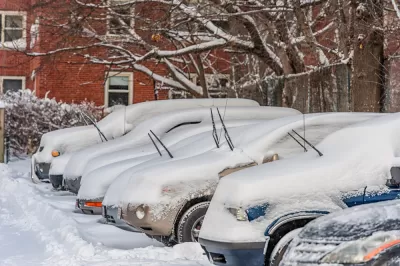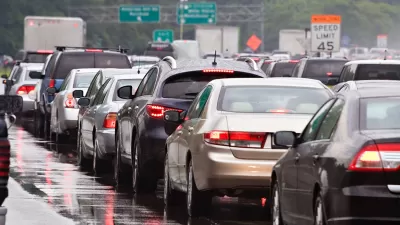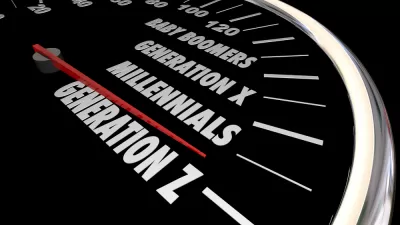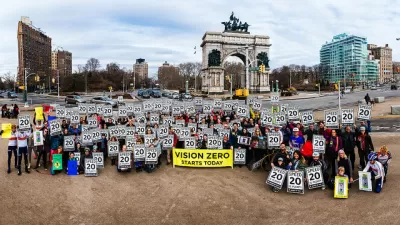Car culture isn't free, even for people who don't own cars.

Nestor Ramos shares news of research recently published by a team of graduates at the Harvard Kennedy School that quantifies the cost of cars on the economy of Massachusetts. The final estimated figure is staggering: $64 billion.
"That astronomical estimate includes all the things we don’t often think about when we get into our cars — costs that extend far beyond what we pay at the dealership or the pump. And the biggest slice of that giant pie gets paid for before anybody actually signs a lease or gets behind the wheel," according to Ramos.
"The costs we all bear include everything from the maintenance of road surfaces across Massachusetts ($1.4 billion) and the estimated annual value of the land we’ve paved for roads and parking ($8.7 billion) to the indirect but very real costs of productivity lost due to time sitting in traffic ($4.6 billion) and as a result of injuries and deaths on the road ($10.5 billion)," reports Ramos.
When that $64 billion is broken down to the household level, the study finds that the average Massachusetts family pays about $14,000 for that total every year, whether they own a car or not. "For those who do own vehicles, the average annual costs nearly double."
FULL STORY: The Massachusetts car economy is costing us $64 billion a year, and we barely notice it

Planetizen Federal Action Tracker
A weekly monitor of how Trump’s orders and actions are impacting planners and planning in America.

Maui's Vacation Rental Debate Turns Ugly
Verbal attacks, misinformation campaigns and fistfights plague a high-stakes debate to convert thousands of vacation rentals into long-term housing.

Restaurant Patios Were a Pandemic Win — Why Were They so Hard to Keep?
Social distancing requirements and changes in travel patterns prompted cities to pilot new uses for street and sidewalk space. Then it got complicated.

In California Battle of Housing vs. Environment, Housing Just Won
A new state law significantly limits the power of CEQA, an environmental review law that served as a powerful tool for blocking new development.

Boulder Eliminates Parking Minimums Citywide
Officials estimate the cost of building a single underground parking space at up to $100,000.

Orange County, Florida Adopts Largest US “Sprawl Repair” Code
The ‘Orange Code’ seeks to rectify decades of sprawl-inducing, car-oriented development.
Urban Design for Planners 1: Software Tools
This six-course series explores essential urban design concepts using open source software and equips planners with the tools they need to participate fully in the urban design process.
Planning for Universal Design
Learn the tools for implementing Universal Design in planning regulations.
Heyer Gruel & Associates PA
JM Goldson LLC
Custer County Colorado
City of Camden Redevelopment Agency
City of Astoria
Transportation Research & Education Center (TREC) at Portland State University
Jefferson Parish Government
Camden Redevelopment Agency
City of Claremont





























